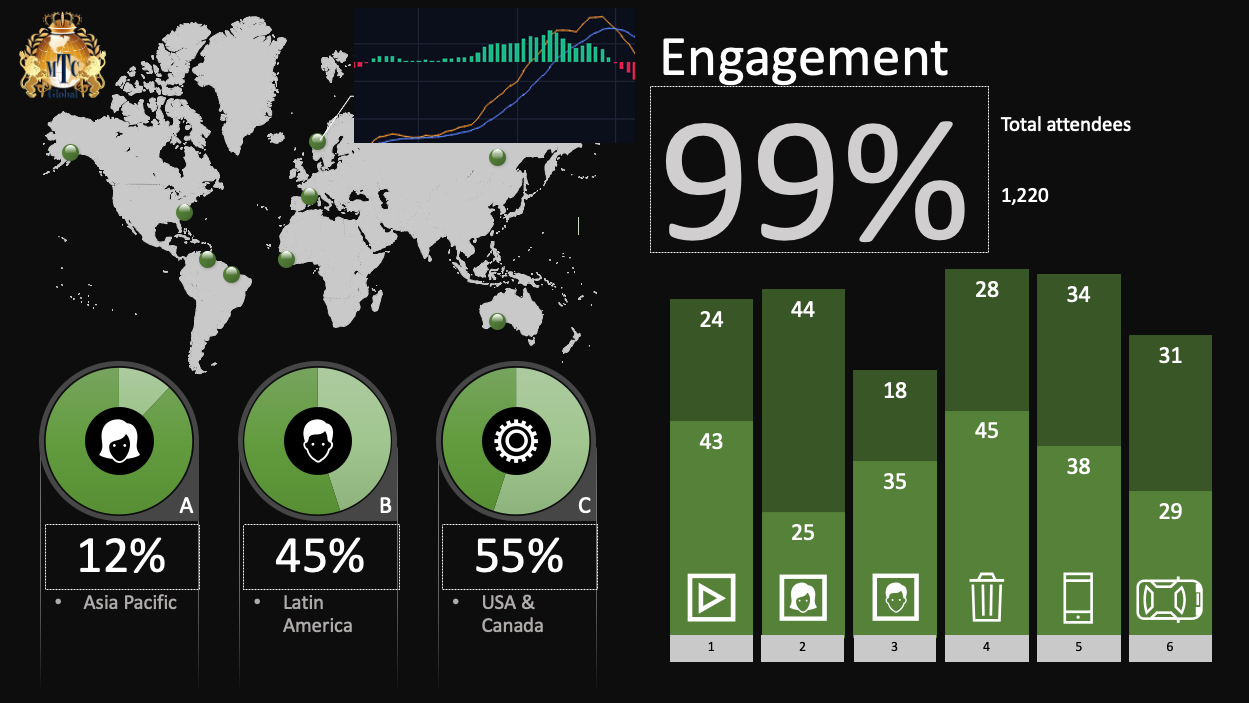
In today’s digital age, data-driven decision-making has become increasingly essential for businesses of all sizes and industries. This is particularly true for event planning and conference management. The success of a conference can be greatly influenced by the decisions made during the planning process, and data can provide valuable insights to guide those decisions. In this article, we will explore the benefits of using data-driven marketing decisions for conference planning.
- Understanding Attendee Preferences
Data can help conference planners understand the preferences of potential attendees. By analyzing data on past conferences or events, planners can identify which sessions or topics were most popular, what types of speakers drew the biggest crowds, and which marketing channels were most effective in driving registrations. This information can be used to guide decisions on speakers, session topics, and marketing strategies for future events.
- Optimizing Marketing Efforts
Data can also be used to optimize marketing efforts for conferences. By tracking the effectiveness of different marketing channels, such as email, social media, and paid advertising, planners can identify which channels are driving the most registrations and adjust their marketing strategy accordingly. They can also use data to segment their audience and tailor their messaging to different groups based on factors such as demographics, job titles, or interests.
- Forecasting Attendance and Revenue
Data can be used to forecast attendance and revenue for a conference. By analyzing historical data on registration rates and ticket sales, planners can estimate how many attendees they can expect and how much revenue they are likely to generate. This information can be used to make decisions on venue size, catering, and other logistics, as well as to set goals for marketing and sponsorship efforts.
- Enhancing Sponsorship Opportunities
Data can also be used to enhance sponsorship opportunities for conferences. By analyzing data on attendee demographics and interests, planners can identify which types of sponsors are likely to be a good fit for the event. They can then use this information to create targeted sponsorship packages that appeal to specific sponsors and provide them with the exposure they are looking for.
- Evaluating Success and Making Improvements
Finally, data can be used to evaluate the success of a conference and identify areas for improvement. By analyzing data on attendee satisfaction, session attendance, and revenue generated, planners can identify which aspects of the conference were successful and which could be improved upon in the future. They can use this information to make data-driven decisions for future events and continue to optimize their conference planning process.
In conclusion, data-driven marketing decisions are critical for successful conference planning. By using data to understand attendee preferences, optimize marketing efforts, forecast attendance and revenue, enhance sponsorship opportunities, and evaluate success, conference planners can make informed decisions that lead to more successful events. As the importance of data-driven decision-making continues to grow in all industries, conference planners must embrace data as a key tool for success.
Thank you for stopping by.
#MTCglobalspotlight #events
.



















